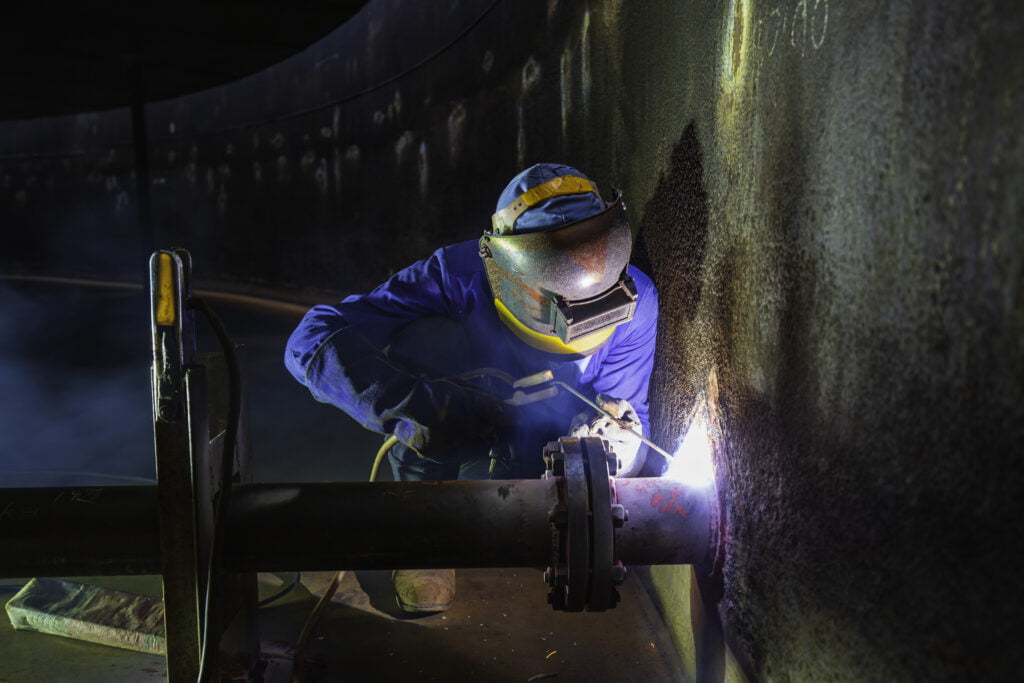Is Welding a Good Career Choice
Welders play a vital role in the manufacturing and construction industries. They use specialized equipment to join metal parts together, typically using a welding torch. Welding is a skilled trade that requires a lot of training and practice. Is welding a good career choice? If you’re interested in working with your hands, have a strong interest in science and math, and are willing to put in the time and effort to learn the trade, then welding could be a great career for you.

Is Welding a Good Career Choice?
Despite the fact that welding is a popular skilled trade, it is not necessarily a good career choice for everyone. This is because welders are often exposed to hazardous conditions and materials. They also have to work in uncomfortable positions and can suffer from injuries such as burns. However, if you are interested in this field and are willing to take the risks, it can be a rewarding and fulfilling career.
Dangers of Welding
No matter how experienced the welder, there are always dangers associated with welding. Site safety warnings should be taken seriously to protect not only welders, but anyone near a welding site.
Welding can be hazardous both to the welder and others in the area due to unexpected sparks or metal shavings flying from the work site. This is why it’s important for welders and those working around them to wear protective clothing such as heavy-duty gloves, face shields, long-sleeved shirts and pants, along with other safety gear like hard hats.
But safety precautions don’t stop there; areas where welding is taking place must be properly ventilated to prevent exposure to toxic fumes while avoiding any combustible materials in close proximity. By following these simple site safety warnings, you can help ensure that everyone involved in a welding project stays safe!
Things to Consider
If you’re thinking about a career in welding, you might be wondering if it’s a good choice. Here are some things to consider:
- The demand for welders is expected to grow in the coming years. This is due to an increase in manufacturing and construction activity.
- Welding is a skilled trade that requires training and practice.
- Welders can earn a good wage. According to the Bureau of Labor Statistics, the median pay for welders was $37,420 in May 2015.
- Welders often have access to good benefits, such as health insurance and retirement plans.
- Welding can be a dangerous occupation, so safety training is essential.
Overall, welding is a good career choice for those interested in skilled trade occupations. There is expected to be strong job growth in the coming years, and welders can earn a good wage. However, it’s important to be aware of the dangers involved in welding and to receive proper safety training.
Types of Welding
There are many different types of welding, each with its own specific applications. Some of the most common welding processes include gas tungsten arc welding (GTAW), gas metal arc welding (GMAW), shielded metal arc welding (SMAW), and flux-cored arc welding (FCAW).
GTAW
Gas tungsten arc welding (GTAW) is a type of welding that uses a tungsten electrode to create an electric arc. The molten metal is then drawn into the weld joint. GTAW is often used for welding thin metals, because it produces a very clean weld. It is also used for welding alloys, such as titanium and aluminum.
GMAW
Gas metal arc welding (GMAW), also known as MIG welding, is a type of welding that uses a continuous wire electrode to create the weld. The molten metal is drawn into the weld joint by a gas shield, which protects the weld from contamination.
SMAW
Shielded metal arc welding (SMAW), also known as shielded arc welding, is a type of welding that uses a consumable electrode to create the weld. The molten metal is drawn into the weld joint by a gas shield, which protects the weld from contamination. SMAW is often used for welding thick metals, because it produces a very strong weld.
Welding Equipment
Welders use a variety of specialized equipment to join metal parts together. This equipment includes welding torches, wire electrodes, and shielding gas tanks.
Welding torches are used to create the electric arc that melts the metal. They come in both gas and electric varieties.
Wire electrodes are used to create the weld. They are available in a variety of diameters and materials, including aluminum, copper, and steel.
Shielding gas tanks are used to create a gas shield around the weld joint. This shield protects the weld from contamination and helps to produce a clean weld.
Metallurgy
Welders must be able to read drawings and blueprints and must have a good understanding of metallurgy. They must also be able to work in a variety of environments, including both indoors and outdoors.
Metallurgy is the study of metals and alloys. Welders must have a good understanding of metallurgy in order to select the right materials for the job, and to ensure that the weld is strong and durable. Metallurgy also includes the study of corrosion and how to prevent it.
Welders must be able to work in a variety of environments, including both indoors and outdoors. They must also be able to work in confined spaces, such as tanks or pipelines. And they must be comfortable working at heights.
Job Growth Expectation
The job market for welders is expected to grow by 6 percent over the next decade. This is due, in part, to the increasing popularity of fabricating and welding products using lightweight metals such as aluminum and magnesium.
Welders who are able to master new welding technologies and processes will have the best job prospects. Those who are willing to relocate to where the work is can also find good opportunities.
Underwater Welding
Welders who are interested in welding in a challenging and unique environment may want to consider underwater welding. Underwater welders must be able to work in difficult and dangerous conditions and must be comfortable working in water. They must also be able to understand and comply with the complex safety procedures that are specific to underwater welding.
Becoming a Welding Engineer
Welding engineers are responsible for the design and development of welding processes and equipment. They must be able to understand the metallurgy of different metals and must be able to select the right materials for the job. They must also be able to design welding processes that are safe and efficient.

Welding engineers typically have a degree in engineering and must be licensed as Professional Engineers (PEs). They must also have a good understanding of computer-aided design (CAD) software.
Welding engineers can find jobs in a variety of industries, including manufacturing, construction, and automotive. They can also find work in research and development labs or teaching positions at universities.
So, if you’re thinking about a career in welding or any skilled trade, go for it! There are plenty of opportunities out there for those who are willing to put in the hard work. And, you’ll never be bored, because no two days in the life of a welder are ever the same.






